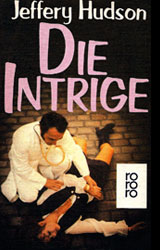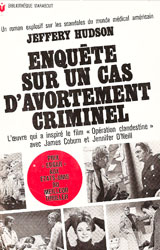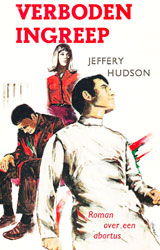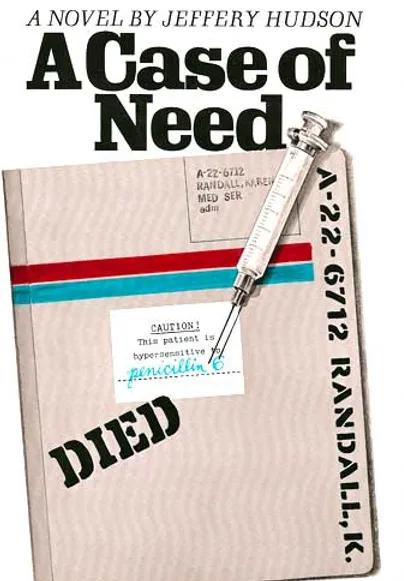A Case of Need
In His Own Words
One issue ignored by medicine in my student days was the problem of abortion, which was then for the most part illegal in the United States. A million American women flew out of the country every year to have an elective abortion. Those who could not afford the plane fare often showed up, septic and bleeding, in hospital emergency rooms. There were abortionists in every city, back-room mills, and whispered addresses passed to frightened women in need of the tawdry, dangerous industry which the medical profession pretended did not exist.
I remember asking a senior physician why the profession did not address the inequities and health hazards of the present situation.
“Abortion is illegal,” he replied.
“I know,” I said. “It’s also medically dangerous and unfair.”
“But it’s illegal,” he said, as if that was all there was to say about it.
I felt there was more to say, and I devised a story that would talk about my concerns. I wrote A Case of Need in ten days during spring break. I sent it to my publisher, and received in reply the call I had been dreading for so long.
“We like it,” my editor said, “but we want some revisions.”
“Oh no,” I groaned.
“You don’t understand,” he said. “This is good news. We want to publish this book in hard cover. But we think it needs some revision first.”
“No,” I said. “Let’s just publish it in paperback, the way we always do.”
There was a puzzled silence. “Usually authors want their book published in hard cover,” he said.
“I don’t,” I said. “And I don’t want to revise it. I’m in school. I have no time.”
But in the end, he talked me into rewriting the novel during the summer, and A Case of Need was published the following year, in 1968.


Synopsis
A Case of Need is Michael Crichton’s award-winning debut novel, written shortly after he completed his medical internship. Set against the ever-building pressure and pace of a large Boston medical center, the tensions flare-and explode-when a surgical operation tragically ends in death, raising countless questions. Was it accidental malpractice? A violation of the Hippocratic oath? Or cold-blooded murder?
From the Archives
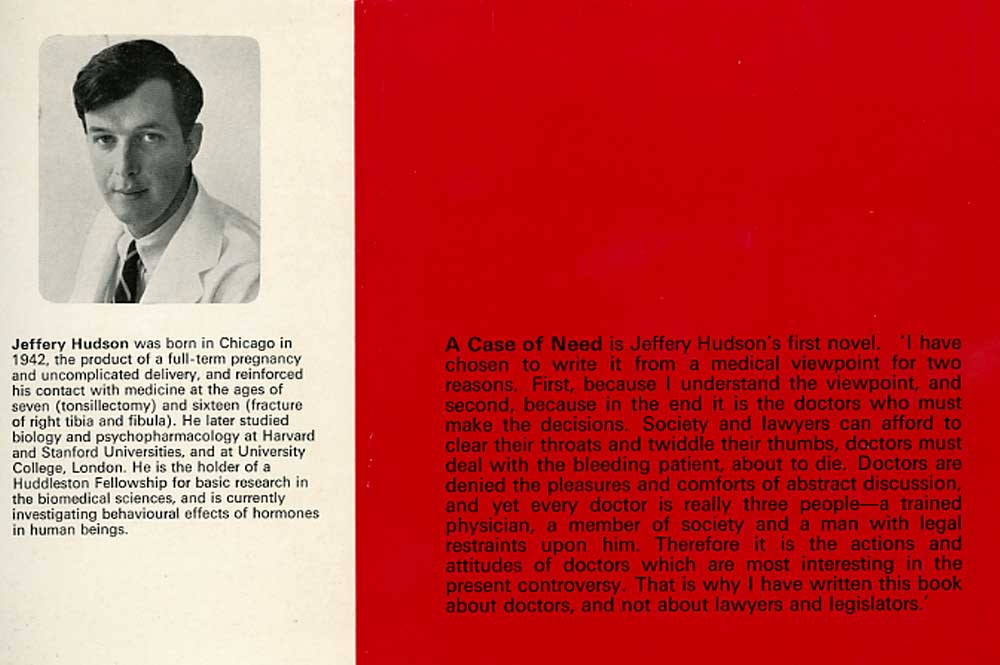

A Case of Need was the only book written by Michael Crichton under the pseudonym Jeffery Hudson.
In His Own Words
Jeffery Hudson was a dwarf from the court of Charles I, a great adventurer actually. And I thought it would be very entertaining fro me to have the name of a dwarf.
Michael Crichton was the recipient of the Mystery Writers of America’s Edgar Allan Poe Award in 1968 for A Case of Need which was written under the pseudonym Jeffery Hudson.
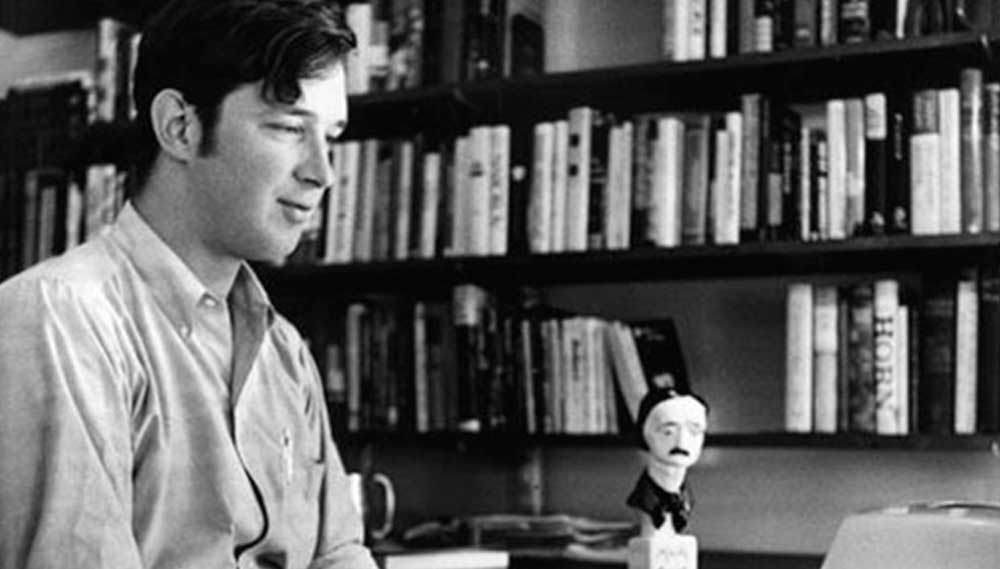

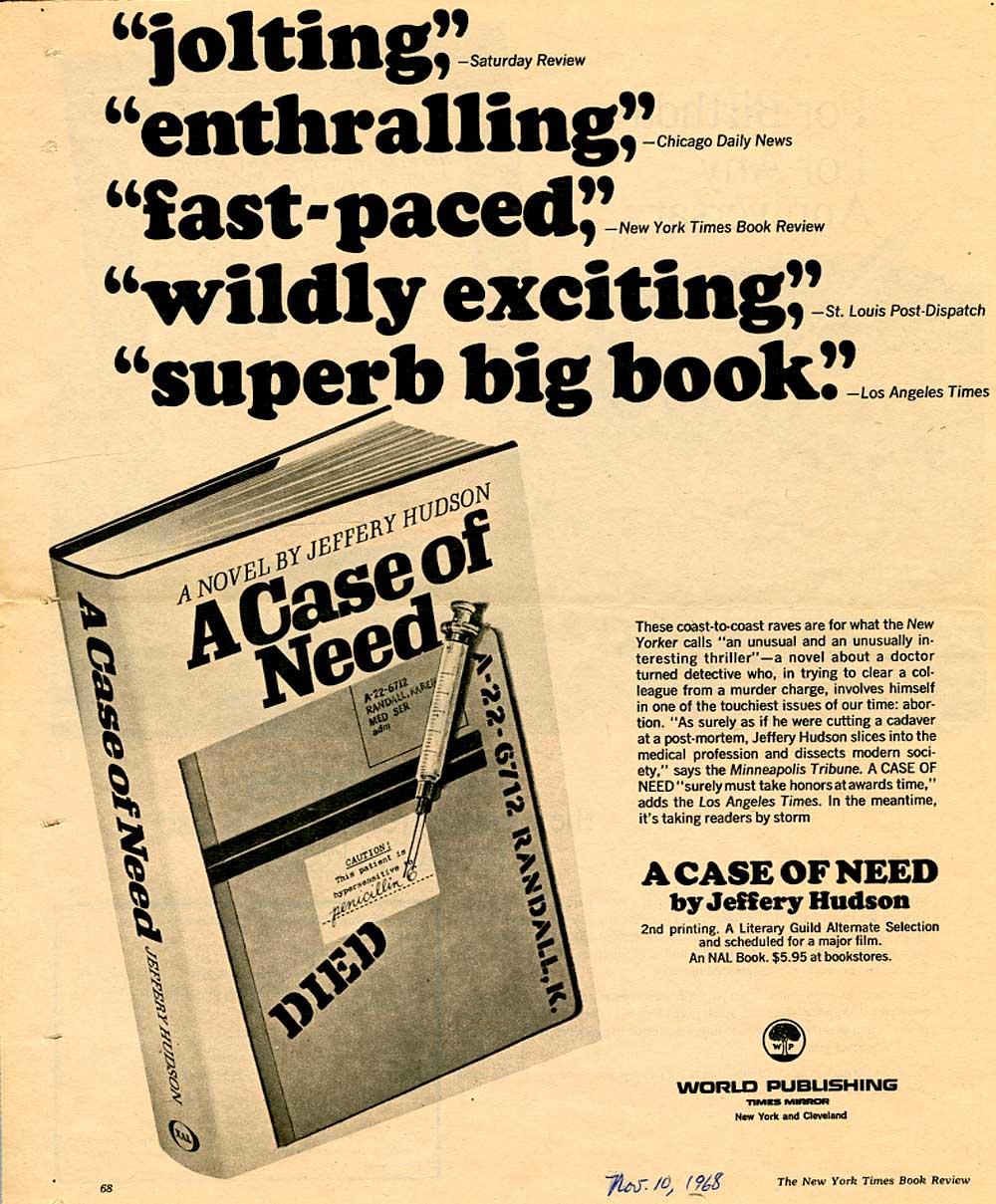

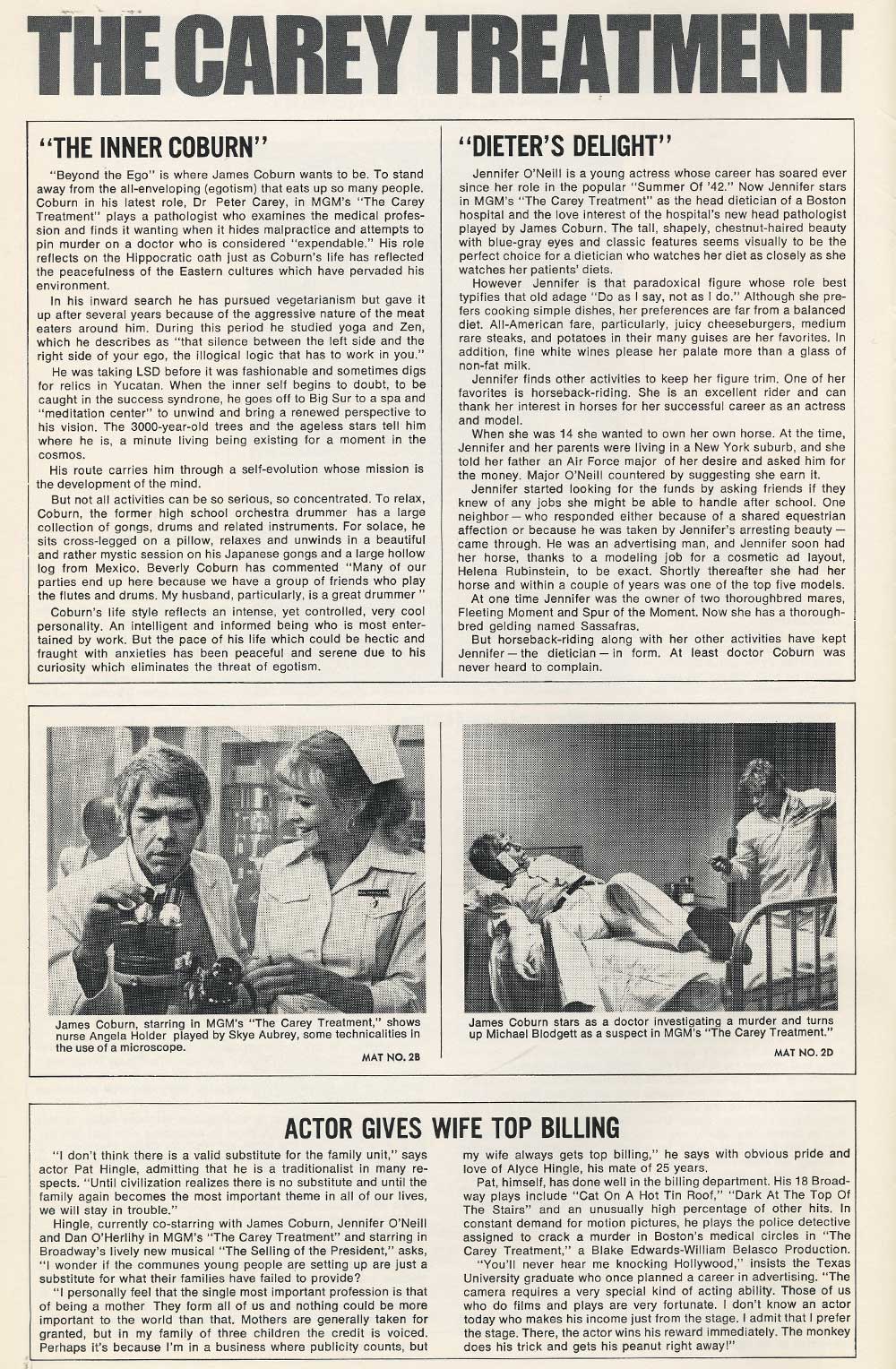

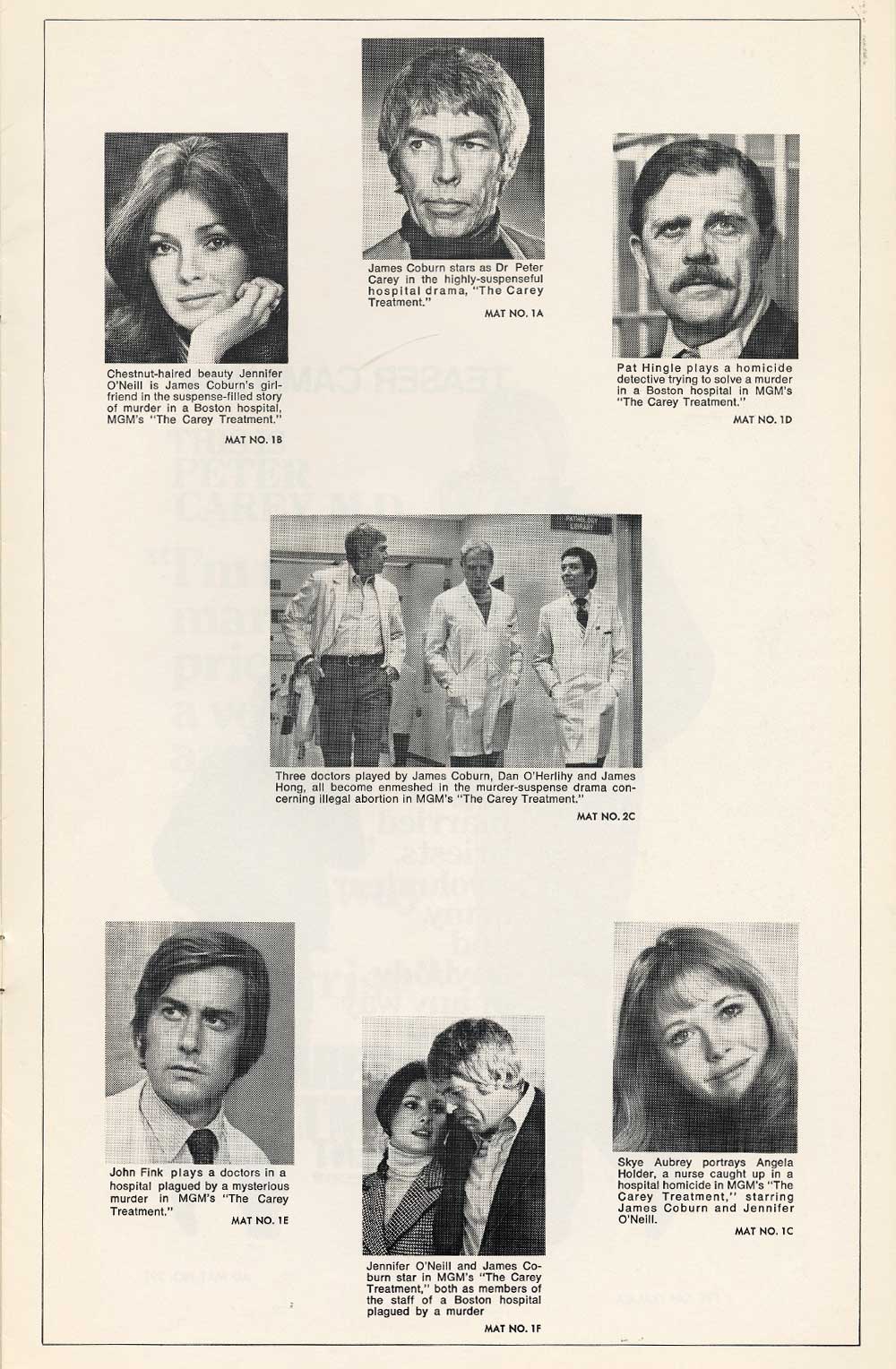

In His Own Words
I was alarmed when I learned, some months later, that the book had been nominated for an Edgar by the Mystery Writers of America as the best mystery of the year. My agent, Lynn Nesbit, called to say that I would have to go the banquet in New York and accept if I won. That prospect was horrifying, because it would reveal my identity. I consoled myself with the hope that I wouldn’t win.
As luck would have it, I did win. Late one Friday afternoon, I slipped out of the hospital, flew down to New York, and accepted my award. I was pleased to have an Edgar, but I made a very hasty acceptance speech. I didn’t want to be photographed; every flashbulb filled me with dread. For the next few weeks, I lived in a state of panic that word of this honor would somehow get back to my professors in Boston.
But that never happened.
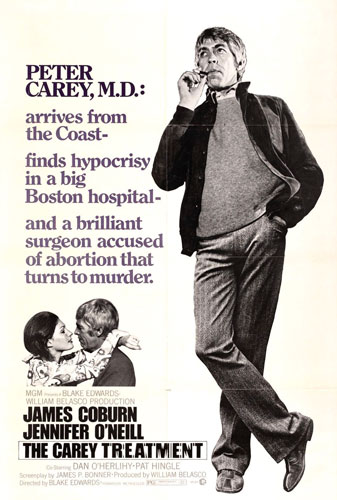

The Carey Treatment (Movie)
| Release Date: | March 29, 1972 |
| Running Time: | 1 hrs. 41 min. |
| MPAA: | PG |
| Director: | Blake Edwards |
| Screenwriter: | John D.F. Black |
| Based on the Novel By: | Michael Crichton |
| Studio: | MGM |
| Starring: | James Coburn, Jennifer O’Neill, Pat Hingle, Jonathan Hillerman |
In His Own Words
The book that I wrote under the name Jeffrey Hudson was a book called A Case of Need and it was optioned for a movie and eventually was made by Blake Edwards. It made my life very strange because I was going to California to talk to the screenwriter and then I’d come back and put on my whites and be in the hospital—an impoverished student and then having these periods where you got into limousines and drove around like that. It was making me a little crazy actually.
Book Covers
